Are you considering stepping away from your current position but feeling overwhelmed by the thought of drafting a resignation letter that honors your contractual obligations? Worry not, as creating a professional and respectful resignation letter is easier than you think. It's essential to clearly state your intent to resign while acknowledging your commitment to fulfilling your contractual responsibilities. Ready to dive deeper into crafting the perfect resignation letter? Let's explore how to articulate your thoughts beautifully and effectively!
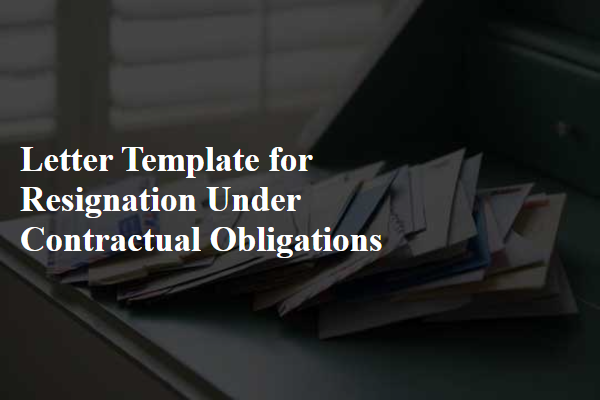
Contractual Terms and Conditions
Resigning from a position requires careful consideration of contractual obligations outlined in employment agreements. The Contractual Terms and Conditions often specify notice periods, procedures for resignation, and expectations regarding the return of company property. Employees must adhere to stipulated notice periods, which can range from two weeks to three months depending on the position and company policies, ensuring that the employer has adequate time to transition workloads. Failure to comply with these contractual obligations may result in penalties, such as forfeit of accrued benefits or legal repercussions in some jurisdictions. Clear communication, preferably in written form, is essential to maintain professionalism and avoid misunderstandings during the resignation process.
Notice Period Requirements
Resignation from a position under contractual obligations often requires adherence to specific notice period requirements outlined in employment agreements. Typically, this notice period ranges from two weeks to three months, depending on the length of tenure and company policy. For instance, in a corporate environment in New York, an employee might be required to give at least 30 days' notice before departing. The resignation should clearly state the last working day, allowing the employer to plan for the transition, including reallocating tasks or finding a replacement. Complying with these contractual obligations helps maintain professional relationships and can aid in securing positive references in future job searches.
Immediate Supervisor Notification
When an employee resigns under contractual obligations, they should formally notify their immediate supervisor through a resignation letter. This letter must clearly state the intent to resign, mention adherence to notice periods stipulated in the contract, and express gratitude for the opportunities provided by the employer. The resignation should include critical details such as the current position held, the effective date of resignation, and a request for an exit interview if desired. It is essential to maintain a professional tone while emphasizing the reasons for leaving, whether it be career advancement, personal development, or other opportunities. Proper documentation enhances the transition process, ensuring all contractual obligations are satisfied.
Transition and Handover Process
A resignation under contractual obligations involves a clear transition and handover process to ensure a smooth transfer of responsibilities. The employee must adhere to the notice period stipulated in the employment contract, typically ranging from two weeks to three months, depending on the organization and position. During this notice period, the resigning employee should document all ongoing projects, status updates, and deadlines. Key tasks include creating a detailed handover document outlining daily responsibilities, key contacts, and critical information about projects such as timelines and client expectations. Scheduling meetings with team members, clients, or stakeholders at locations like the office or via virtual conferences is essential for discussing the transition. Further, arranging training sessions for successors to cover specialized skills or knowledge specific to the role ensures a seamless transition. Engaging with human resources (HR) for exit interviews and maintaining professionalism throughout the process is crucial to uphold professional relationships.
Acknowledgment of Company Property and Confidentiality
Resignation from employment often involves contractual obligations that require employees to acknowledge their responsibilities towards company property and confidentiality. Upon submitting a resignation notice, employees should confirm the return of physical items such as laptops, access cards, and mobile devices. Additionally, they must reaffirm their commitment to maintaining confidentiality regarding proprietary information, trade secrets, and client data, which is typically outlined in employment agreements. This acknowledgment serves not only as a compliance measure but also as a professional courtesy that ensures the protection of both the employee and the organization's interests post-resignation.

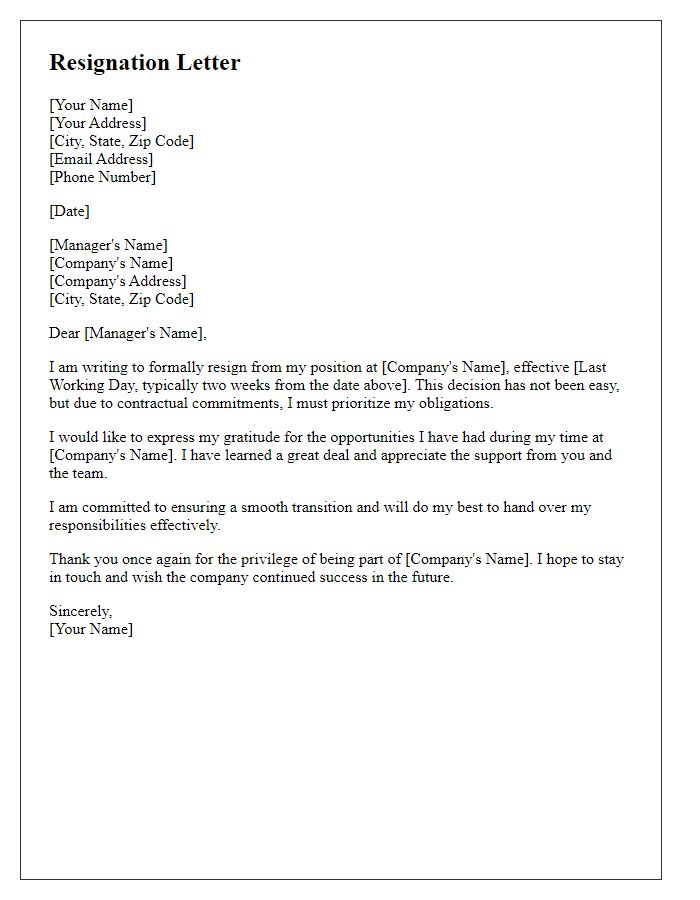
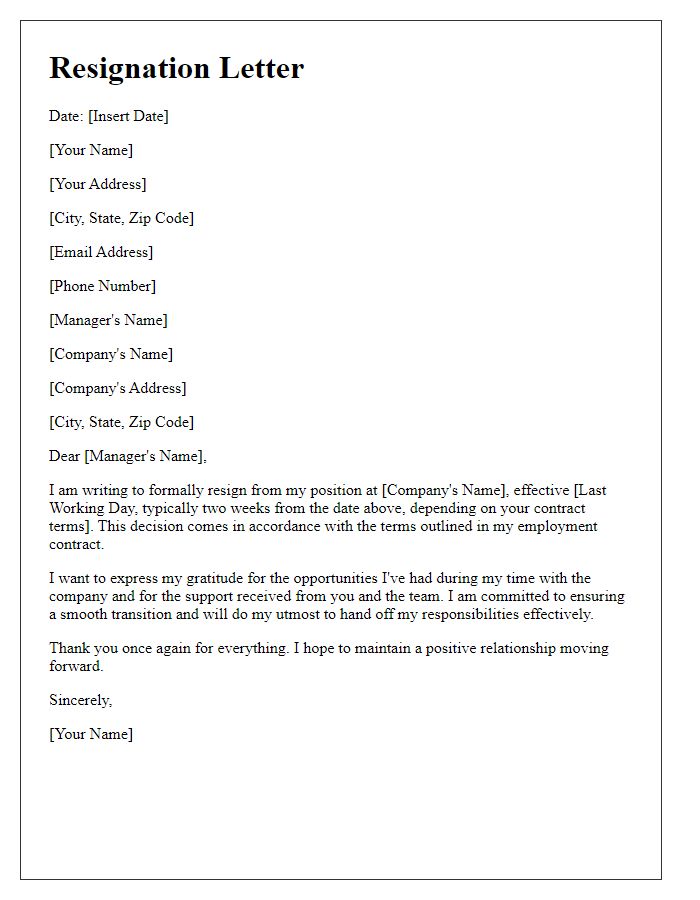
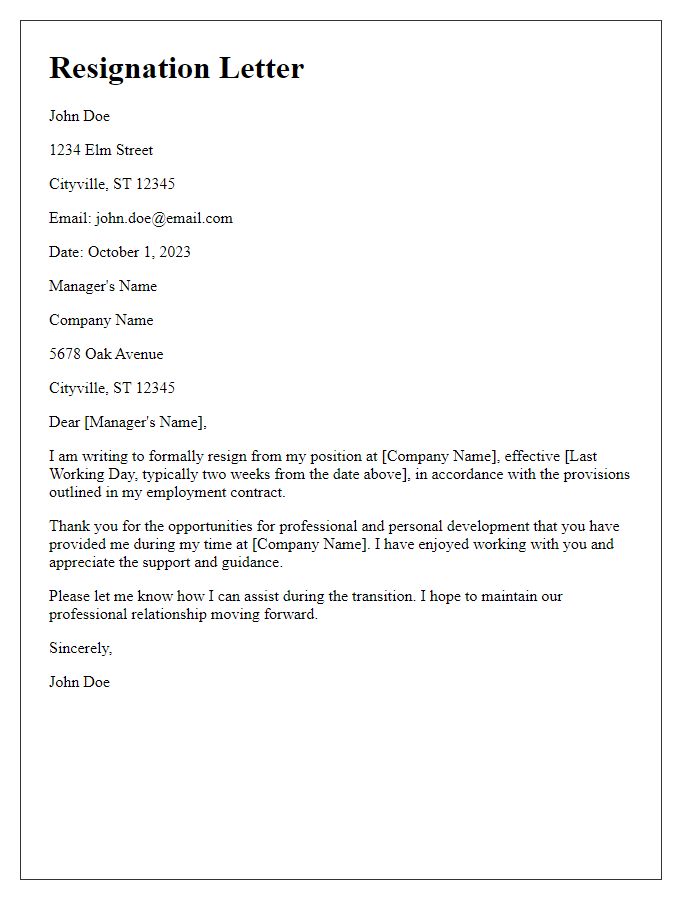
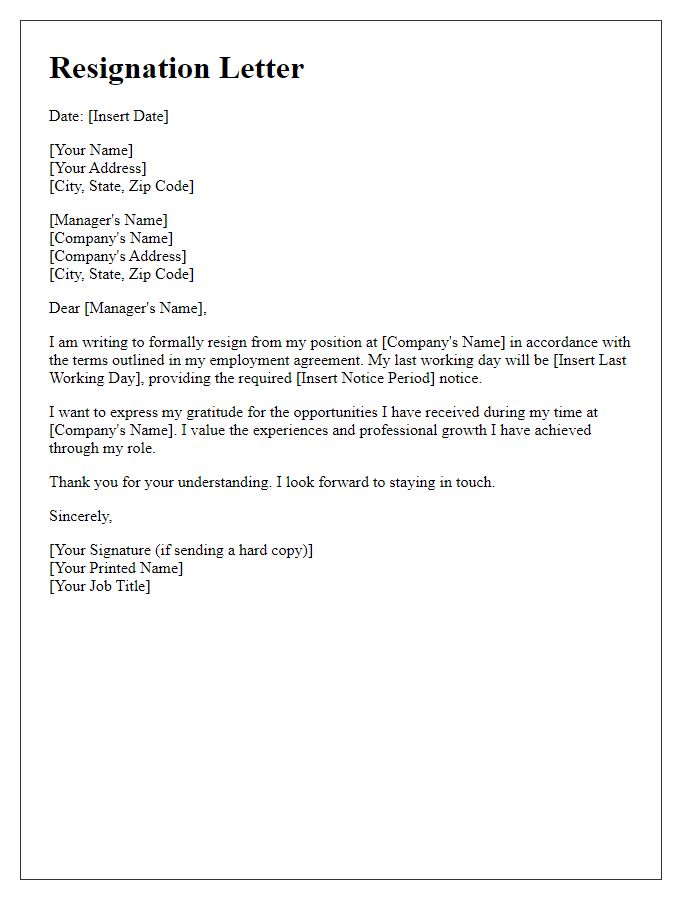
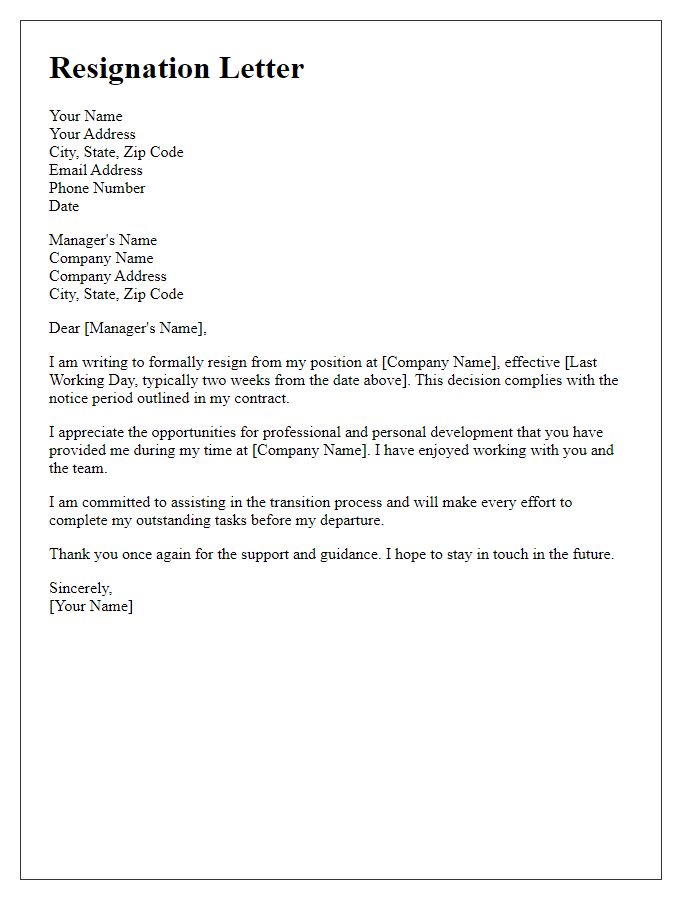
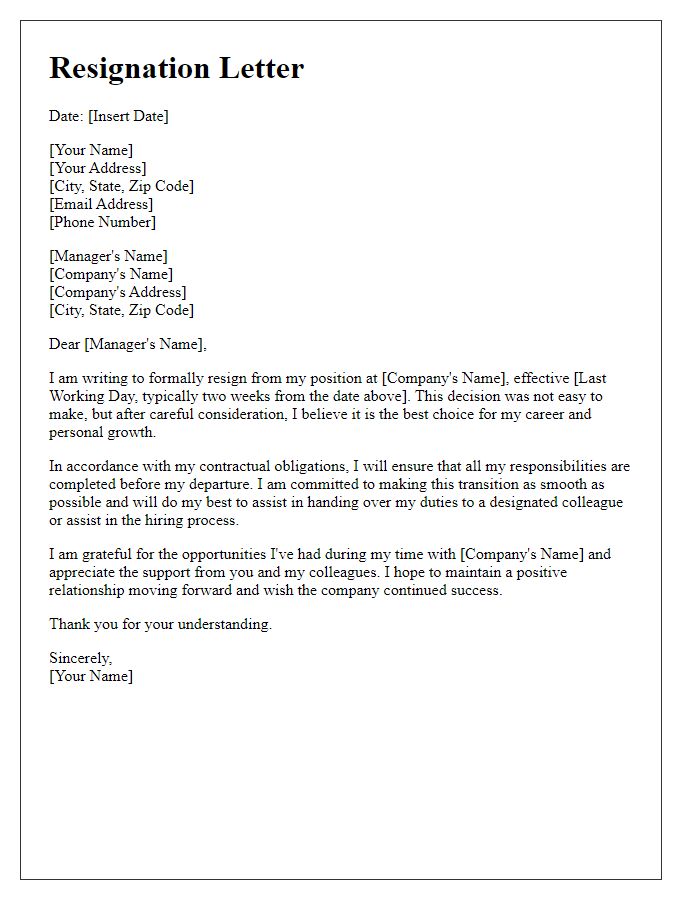
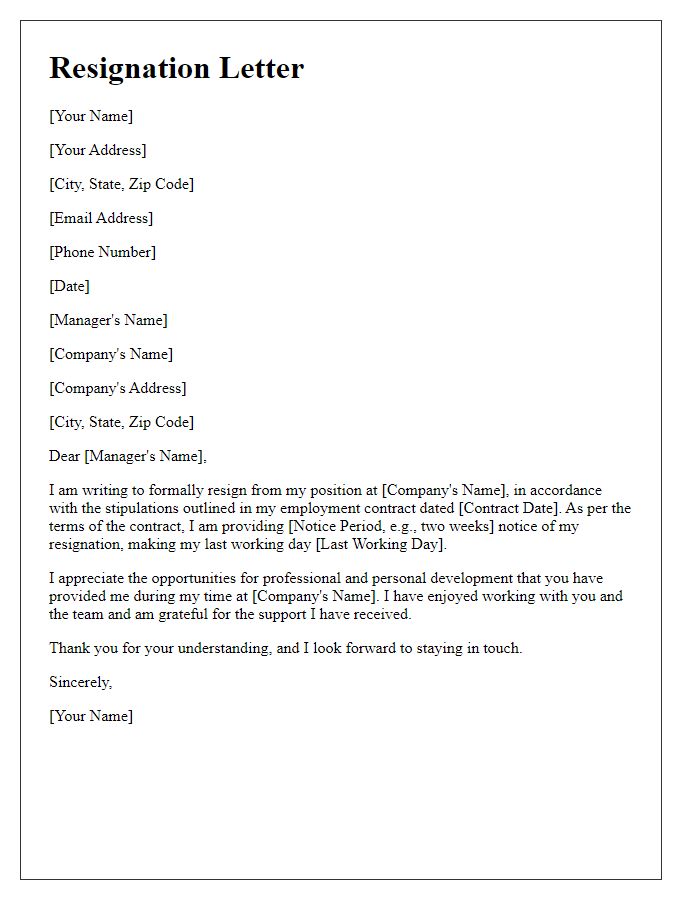
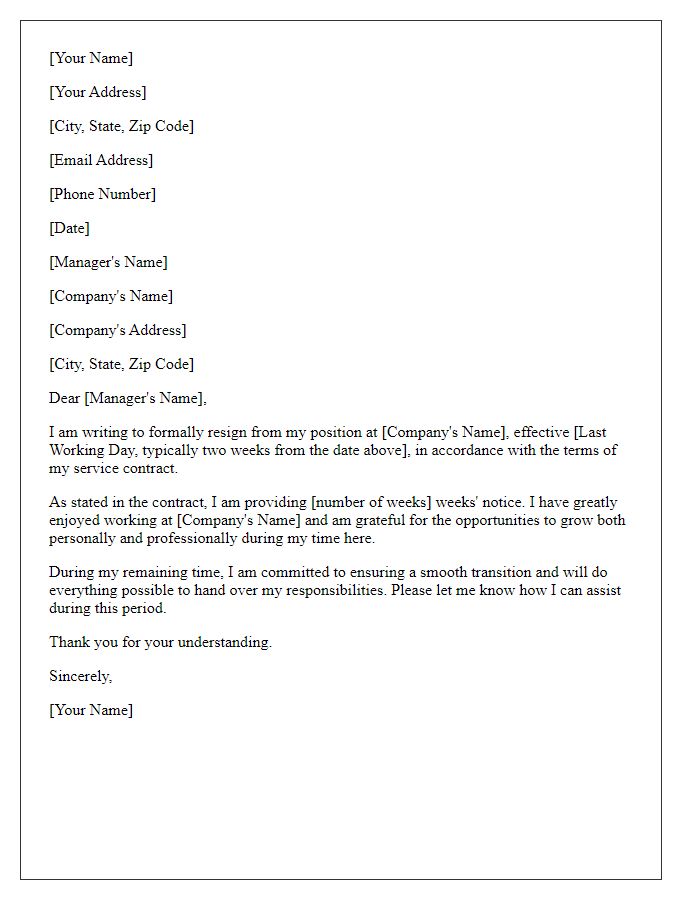
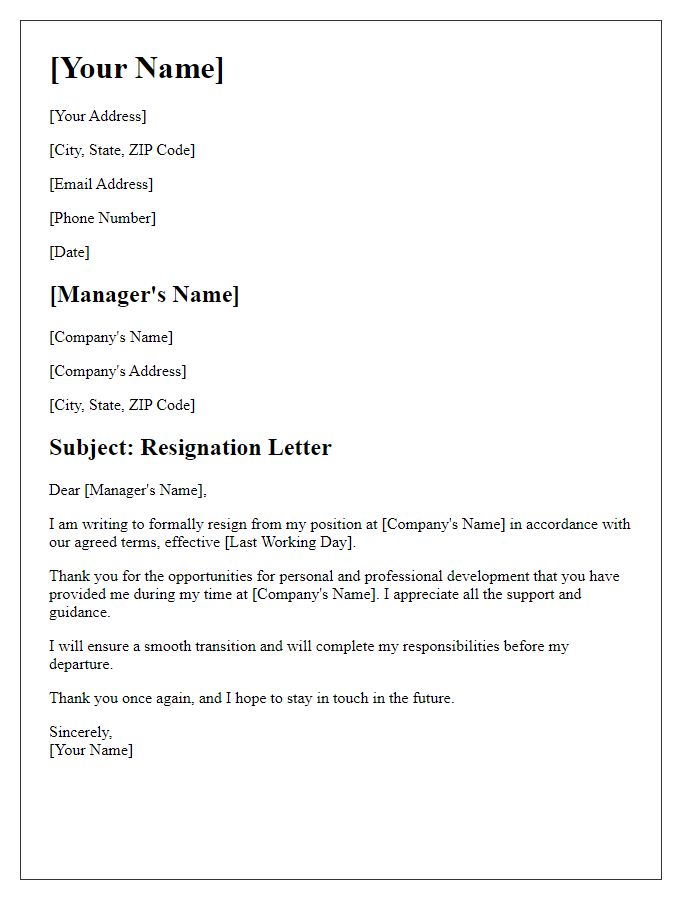
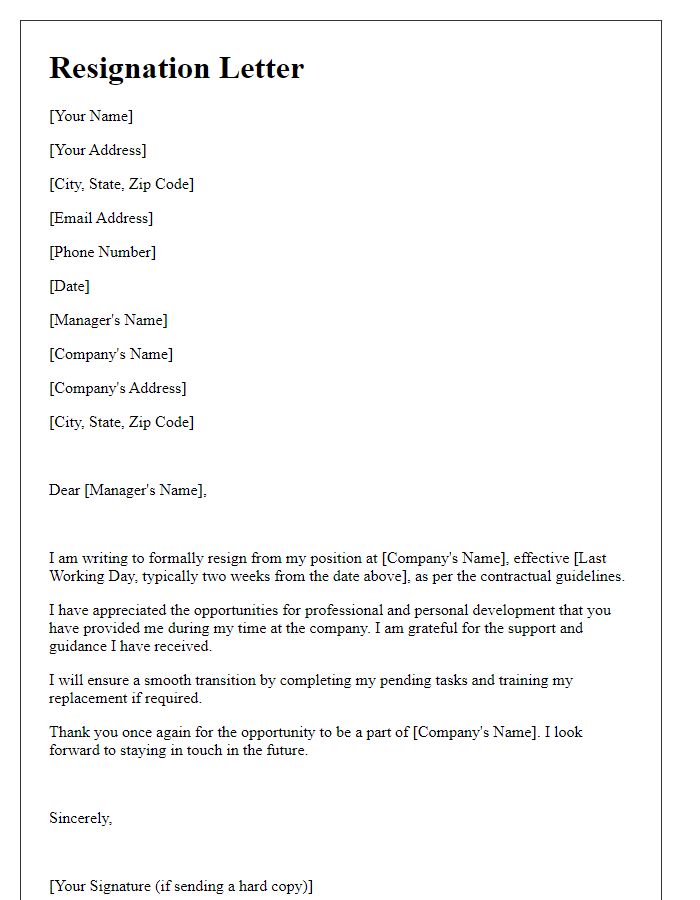


Comments